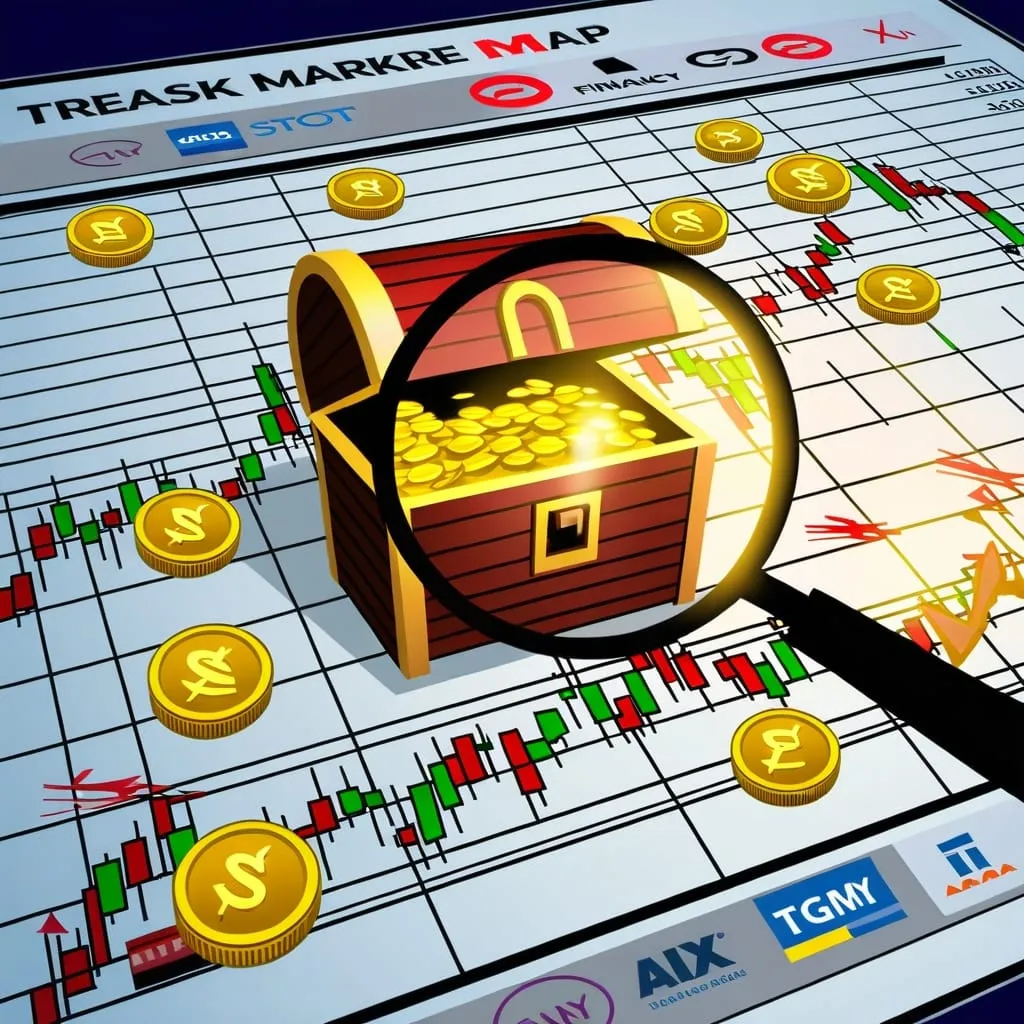Treasure Hunting in the Stock Market: Uncovering Hidden Gems
Hey there, fellow investor! Ever feel like you're on a never-ending quest for that perfect stock? You know, the one that's gonna make you rich overnight? Well, hate to burst your bubble, but that's not how it works. But don't worry, I've got something even better for you - the art of finding undervalued stocks. It's like treasure hunting, but instead of digging in the sand, you're digging through financial reports. Sexy, right?
So, what's an undervalued stock anyway? Think of it as that amazing jacket you found in the clearance section. It's worth way more than its price tag, but for some reason, everyone's overlooking it. That's what we're after in the stock market - quality companies that are trading for less than they're worth.
Now, you might be thinking, "Great, but how do I find these hidden gems?" Well, buckle up, because we're about to dive into the world of valuation ratios. Don't worry, I promise it's not as boring as it sounds.
First up, we've got the Price-to-Earnings (P/E) ratio. It's like comparing the price of a pizza to how many slices you get. If you're paying less for more slices compared to other pizzerias, you might be onto something good. In stock terms, if a company's P/E is lower than its industry peers, it could be undervalued.
Next, we've got the Price-to-Book (P/B) ratio. Imagine buying a company for less than the value of all its stuff. That's what a P/B ratio below 1 suggests. It's like getting a 20% discount on everything in the store.
Then there's the Debt-to-Equity ratio. Think of it as a financial health check. A company with less debt is like that friend who always pays back what they owe - reliable and less likely to ghost you when the market gets tough.
And let's not forget about Return on Equity (ROE). It's like checking how efficiently a company is using its resources. High ROE? That's a company making the most of what it's got.
Now, here's a little insider tip - keep an eye on, well, insiders. When the big shots at a company start buying up their own stock, it's like they're saying, "Hey, our company's worth more than people think!" It's not a guarantee, but it's definitely worth paying attention to.
Remember that stock that took a nosedive recently? Don't write it off just yet. Sometimes, the market overreacts to bad news, creating an opportunity for savvy investors. It's like finding a perfectly good umbrella in the trash just because it rained once.
But hold up, before you go all in on that bargain stock, make sure it's not a value trap. That's a stock that looks cheap but is actually cheap for a good reason. It's like buying a car just because it's on sale, only to find out it doesn't have an engine.
Now, if you're feeling a bit overwhelmed, don't worry. There are tools out there to help you sift through the mountain of stocks. Stock screeners are like your personal assistant, filtering out the noise and presenting you with potential gems based on your criteria. It's like having a metal detector at the beach - it doesn't guarantee treasure, but it sure makes the hunt easier.
But hey, don't just rely on numbers. Dig deeper into the company's overall health. Look at their earnings history, cash flow, and balance sheet. A company with a solid track record and strong financials is more likely to be a diamond in the rough if its stock price doesn't reflect these strengths.
And don't forget to zoom out and look at the bigger picture. Sometimes, entire sectors can be undervalued due to temporary setbacks. It's like finding a neighborhood where all the houses are underpriced because of a temporary construction project nearby.
Now, let's talk about avoiding those pesky value traps. It's not enough to find a cheap stock - you need to understand why it's cheap. Is it because of temporary issues that the company can overcome? Or is it because the company is circling the drain? Doing your homework here is crucial. It's like dating - you don't want to commit before you really get to know them, right?
Everyone has their own style when it comes to investing. Some people are all about the numbers, while others prefer to focus on the quality of management or the company's competitive edge. Whatever your approach, make sure you're thorough. Read those financial statements, analyze industry trends, and if you're feeling really ambitious, maybe even visit the company's operations. It's like being a detective, but instead of solving crimes, you're solving investment puzzles.
Let's look at a real-life example to bring this all home. Imagine a company like Coca-Cola hits a rough patch. Maybe there's a temporary market downturn, or some negative press hits the fan. The stock price takes a hit, but when you dig deeper, you find that their P/E ratio is lower than the industry average, and they're not drowning in debt. Plus, you notice that company insiders are buying up shares like they're going out of style. That, my friend, could be a sign that this stock is undervalued and ripe for the picking.
Finding undervalued stocks isn't a get-rich-quick scheme. It's more like planting a garden. You need patience, skill, and a bit of luck. But with the right tools and approach, you can cultivate a portfolio that'll make your neighbors green with envy.
Remember, it's all about playing the long game. Use those valuation ratios, keep an eye on insider buying, analyze financial health, and steer clear of those tricky value traps. Do your homework, trust your gut (but verify with data), and you'll be well on your way to uncovering those hidden stock market treasures.
So, are you ready to put on your investor hat and start digging for those undervalued gems? Trust me, it's way more fun than it sounds. And who knows? You might just uncover the next big thing before everyone else catches on. Happy hunting, investor!






